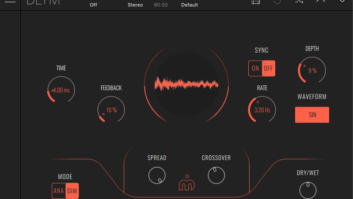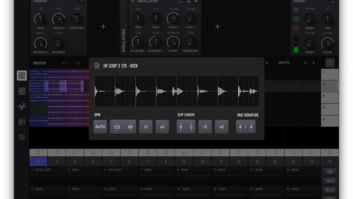Washington — The House of Representatives approved legislation Wednesday, 264-158, to delay the analog TV cutoff date 115 days to June 12, 2009.
The measure, which was identical to a bill passed unanimously by the Senate for a second time, will now be sent to President Obama, who is expected to sign it into law.
House Republicans, who had voted down the delay last week under a rules suspension that required a two-thirds majority vote, failed to win a procedural change that would have opened the bill to amendments.
The House Rules Committee granted ground rules proposed by House Energy & Commerce Committee Chairman Henry Waxman (D-Calif.), who had asked the bill be brought up under the so-called “closed rule,” which prevented the proposal of and votes on amendments that could slow down the process.
Rep. Joe Barton, (R-Texas) pointed out repeatedly that the delay measure had never been given an opportunity for mark-up discussion in the House Energy & Commerce Committee. He said Republicans had prepared six amendments that would have made the delay better, including the authorization of up to $250 million of already allocated funds to clear up a waiting list for converter-box coupons.
The funds would have come from the $1.3 billion National Telecommunications & Information Administration (NTIA) coupon budget that has been tied up since December, when the program ran out of money. Under rules, the NTIA cannot issue new coupons until funds have cleared from the expiration of coupons in the field after 90 days.
Prior to the vote discussion, Waxman and House Telecommunications & Internet Chairman Rick Boucher (D-Va.) updated figures on the number of households in each congressional district that are on a waiting list for DTV-to-analog converter-box coupons.
Democrats pointed to Nielsen estimates for January, showing some 6.5 million people, who receive television only via terrestrial analog signals, were still not prepared for the transition date with 13 days remaining until the previously established cutoff date.
Boucher argued that even if the funds for converter-box coupons were in hand today, there wouldn’t be sufficient time to get impacted people ready to receive digital broadcasts.
Boucher and Waxman also indicated in a letter to House members prior to the vote reaching the floor that another 200,000 households had been added to the coupon waiting list, raising the number to 1.8 million overall.
Barton also sought unsuccessfully to establish an amendment that would have enabled the Federal Communications Commission to take back on or before Feb.17 analog frequencies from TV broadcasters whose analog stations sit on frequencies that have been allocated to new broadband communications for emergency first responders.
During the floor debate, Rep. Darrell Issa, (R-Calif.) also questioned the motives of advisors to President Obama on the DTV transition question. Issa said that one of the president’s advisors was associated with Clearwire, a wireless communications company that will benefit in a delay in analog spectrum being turned over to competitors who have purchased that spectrum at auction.
In addition to changing the analog cutoff date, the delay in the all-digital TV broadcasting measure allows broadcasters to end their analog transmissions on the previous Feb. 17 deadline. The bill also allows TV households to reapply for expired coupons using $650 million currently in the economic stimulus package to fund the new coupons. Some of the money will also be used for additional education and outreach.
The measure also contributes more resources to DTV education and outreach efforts, including improving and expanding call centers that will handle consumer questions and problems during the transition process.
Commenting on the House action Wedneday, Gary Shapiro, Consumer Electronics Association president and CEO, said: “Our nation is leading the world in the digital migration, and CEA again pledges full support for a successful transition to digital television. We will quickly update our consumer education material as necessary and we will devote a significant portion of our Washington Forum event in April to DTV education.
“As CEA has repeatedly cautioned, this date change will inject uncertainty into the market and may result in a shortage of converter boxes, because manufacturers and retailers planned box inventory based on a February 17 transition date. CEA urges Congress and the Administration to take the necessary steps to ensure converter box availability and to urge consumers to act immediately to enjoy the benefits of DTV.”
Acting FCC Chairman Michael J. Copps said: “I welcome Congressional passage of the DTV Delay Act. It has long been clear to me–and it’s even clearer since I became Acting FCC Chairman two weeks ago–that the country is not prepared to undertake a nationwide transition in twelve days without unacceptably high consumer dislocation.
“The additional four months provided by the law affords urgently-needed time for a more phased transition, including a consumer-friendly converter box coupon program, stepped-up consumer outreach and support–particularly for vulnerable populations — and dealing with coverage, antenna and reception issues that went too long unaddressed. We’ve got a lot of work to do, but thanks to great leadership in the Senate and House of Representatives, we now have an opportunity to do it better.”













